
Code: 05283649
Free Voice of the Free World
by Annika Witzel
Seminar paper from the year 2012 in the subject History Europe - Germany - Postwar Period, Cold War, grade: 1,3, University of Bonn (Institut für Anglistik, Amerikanistik und Keltologie (IAAK)), language: English, abstract: 1. Int ... more
- Language:
 English
English - Binding: Paperback
- Number of pages: 24
Publisher: Grin Publishing, 2013
- More about this

34.44 €
RRP: 36.99 €
You save 2.55 €

In stock at our supplier
Shipping in 15 - 20 days
You might also like
-

Diapause in the Crustacea
177.16 € -

Raiders and Writers of Cervantes' Archive
55.63 € -

Introduction to Civil Wars
115.09 € -

Be Positive!
10.33 € -22 % -

Da Vinci Fraud
17.97 € -17 % -

My Brother's Keeper
51.82 € -4 % -
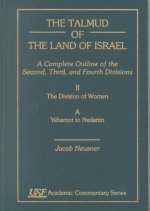
Talmud of the Land of Israel
162.19 €
Give this book as a present today
- Order book and choose Gift Order.
- We will send you book gift voucher at once. You can give it out to anyone.
- Book will be send to donee, nothing more to care about.
More about Free Voice of the Free World
You get 87 loyalty points
 Book synopsis
Book synopsis
Seminar paper from the year 2012 in the subject History Europe - Germany - Postwar Period, Cold War, grade: 1,3, University of Bonn (Institut für Anglistik, Amerikanistik und Keltologie (IAAK)), language: English, abstract: 1. Introduction RIAS has always been more than just the initials of an American post-waroperation in divided Berlin. For many people in Berlin and in East GermanyRIAS Berlin was and still is a part of their life; a piece of their very personal biography (Kundler 2002: preface)This statement was made by Siegfried Buschschlüter, RIAS broadcasting director, in October 1993, a few months before RIAS history ended and the one of its successor, Deutschlandradio, began. RIAS, short for Rundfunk im Amerikanischen Sektor was established in Berlin by the United States Information Agency in 1946 and has played a significant role in German media history in the post-war era. Its motto A free voice of the free world proves the objective of the station and the position it saw itself in. Thepaper at hand aims at investigating this role and will elaborate on the question why this station was so special to the people especially to the people in East Germany and later the German Democratic Republic (GDR). Measuring the impact of RIAS on the people in East Germany and the GDR might seem impossible, since in these areas it was officially forbidden to listen to the station. Still, people did listen, since radio had the important advantage that it could be received almost everywhere while Western presswas not legally and easily available for the people in East Germany (Soldat 2008: 184).Therefore, it is very important to note that this paper's objective is twofold: it does not only look at the perception of RIAS by its target listeners in East Germany/the GDR but also at the way how East Germany's government perceived and reacted to the station. The most important historical event bringing together those two sides is June 17th, 1953, since this day, RIAS and its reporting triggered the strongest reactions from both sides of the spectrum. This is mainly the reason why 1953 was used in this paper as a frame year to limit the focus of this paper on a particular period of time. Of course the influence of RIAS did not end with the year 1953, on the contrary. There were many events such as the erection of the Berlin Wall in 1961 or Kennedy's visit to Berlin in 1963 to which RIAS and its reporting had a lot to contribute. However, these events after the revolts in 1953 will be left out in this paper.
 Book details
Book details
Book category Books in English Humanities History History: earliest times to present day
34.44 €
- Full title: Free Voice of the Free World
- Subtitle: The perception of RIAS Berlin in East Germany and the GDR between 1946 and 1953
- Author: Annika Witzel
- Language:
 English
English - Binding: Paperback
- Number of pages: 24
- EAN: 9783656353294
- ISBN: 3656353298
- ID: 05283649
- Publisher: Grin Publishing
- Weight: 45 g
- Dimensions: 210 × 148 × 2 mm
- Date of publishing: 24. January 2013
Trending among others
-

Guns, Germs, and Steel
16.76 € -

Illustrated Encyclopedia of Uniforms of World War I
20.68 € -26 % -

Histories
5.31 € -28 % -

The Art of Combat
28.61 € -18 % -

Anunnaki Homeworld
16.86 € -19 % -

Pakistan: A Hard Country
16.66 € -24 % -

History of the Ancient World
33.13 € -6 % -

This Kind of War
25.50 € -23 % -

Swedish Army of the Great Northern War, 1700-1721
25.10 € -28 % -

M3 Infantry Half-Track 1940-73
11.84 € -35 % -

Open Tomb
24.30 € -1 % -
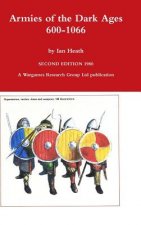
Armies of the Dark Ages
36.85 € -2 % -

Jack and LEM
18.77 € -17 % -

Inside the Clinton White House
24.80 € -23 % -

Peloponnesian War
14.85 € -28 % -
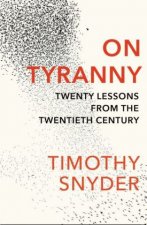
On Tyranny
9.83 € -26 % -

Rise and Fall of Ancient Egypt
17.16 € -28 % -

From Third World to First
14.05 € -24 % -

King Leopold's Ghost
13.25 € -15 % -

Spartans
14.35 € -22 % -

Fear and Loathing on the Campaign Trail '72
13.25 € -28 % -

Medieval Combat in Colour
25.10 € -28 % -

Gallic War
8.53 € -23 % -

Postwar
16.46 € -25 % -

Underground
10.94 € -23 % -

Swerve
11.24 € -8 % -

Complete Roman Army
20.18 € -28 % -
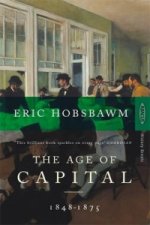
Age Of Capital
15.16 € -28 % -
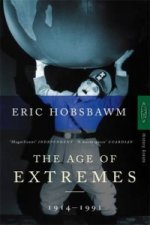
Age Of Extremes
17.16 € -21 % -

Shake Hands With The Devil
15.06 € -18 % -

Deng Xiaoping and the Transformation of China
32.83 € -

Victorian Lady's Guide to Fashion and Beauty
16.26 € -32 % -
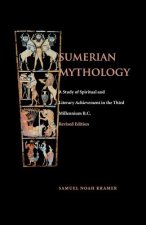
Sumerian Mythology
23.99 € -6 % -
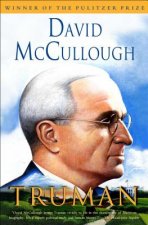
Truman
17.77 € -25 % -

Making Medieval Manuscripts
17.26 € -18 % -

Yoga Body
18.77 € -10 % -

Fall of Yugoslavia
11.24 € -28 % -

Electric Kool-Aid Acid Test
10.94 € -23 % -

Chernobyl Prayer
10.64 € -25 % -

Who Paid The Piper?
13.25 € -28 % -

Caesar
18.67 € -22 % -
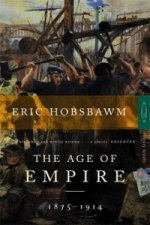
Age Of Empire
16.56 € -21 % -

Armies of the Late Roman Empire AD 284 to 476
27.81 € -21 % -
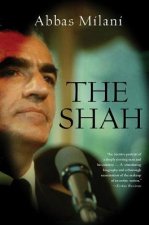
The Shah
22.39 € -16 % -

Pol Pot
15.16 € -28 % -

Access to History: War and Peace: International Relations 1890-1945 Fourth Edition
34.74 € -

Historical and Chronological Context of the Bible
43.38 € -

Pearson Baccalaureate: History Causes and Effects of 20th-century Wars 2e bundle
59.05 € -

Varangian Guard 988-1453
14.55 € -27 %
Collection points Bratislava a 2642 dalších
Copyright ©2008-24 najlacnejsie-knihy.sk All rights reservedPrivacyCookies


 15549 collection points
15549 collection points Delivery 2.99 €
Delivery 2.99 € 02/210 210 99 (8-15.30h)
02/210 210 99 (8-15.30h)